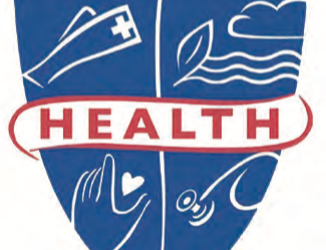by Kate Evans
The heart is a vital organ that keeps our bodies healthy and functioning well. Heart disease is the leading cause of death in the United States today for both men and women, according to the U.S. Department of Health and Human Resources Office of Disease Prevention and Health Promotion.
There are lots of ways that people can keep their heart strong and lower their risk of heart disease to lead a healthier, longer life.
They include eating healthy, being physically active, quitting smoking, maintaining a healthy weight, controlling cholesterol levels, limiting alcohol and managing stress.
The heart
The heart is the engine that keeps the blood circulating in the body, which provides nutrients and oxygen through the blood vessels to the body’s organs, said physician Dr. Joseph Hashem of Valley Health War Memorial Hospital Internal Medicine in Berkeley Springs.
Without the heart pumping nutrients and oxygen, the body’s organs can’t function.
Hashem said that the heart and the blood vessels of the heart are susceptible to the build-up of plaque as we get older, which clogs up and blocks the blood vessels and arteries. Heart attacks then occur and that area of the heart dies.
The heart also has an electrical system that generates a beat which is usually around 70-80 times a minute, he said. That beat pushes the blood through the arteries and the heart’s chambers. Any issues with the heart’s electrical system can cause irregular heart rhythms called arrhythmias that can create conditions leading to stroke.
Hashem said that medical providers are seeing more cases of atrial fibrillation (Afib) as people get older.
With atrial fibrillation, the upper atrial chambers of the heart beat with an irregular rhythm and aren’t functioning well electrically. When these chambers beat irregularly, blood can pool within them and can predispose people to forming blood clots. If those clots travel to the brain, they can cause a stroke.
Avoiding heart attacks
Dr. Hashem said it’s important to avoid a heart attack as a major one can be fatal. Tbe best ways to prevent a heart attack include not smoking, maintaining a healthy weight, not eating a lot of animal fats, treating high cholesterol and keeping Type 2 diabetes under control.
Treating high cholesterol is a big issue because that contributes to heart attack and stroke risk, Hashem said. Bringing that cholesterol number down lowers the risk of buildup occurring in the arteries. He said that since the heart’s arteries are very thin, the plaque buildup there happens faster. This happens in younger people too and they can also have heart attacks.
Women have a 2-4 times risk of having a heart attack, Hashem said. It’s important to keep an eye on that along with weight management as it makes the risk of getting heart disease double or worse.
Prevention includes a healthy lifestyle and healthy life choices along with working with your doctor to control your cholesterol. Treating high cholesterol is very important, he said.
Hashem said that in the 20th century, there was a big push to find cures for coronary heart disease and the reasons why people had heart problems. Preventative treatment with cholesterol-lowering medications and heart medicines emerged.
Other 20th century heart breakthroughs included coronary angiography, open heart surgery, cardiac catheterization, automatic implantable cardiac defibrillators, pacemakers, heart valve replacement and stent insertion.
Open heart surgery down
Dr. Hashem said when he set up his medical practice here in December 1990 that he sent an average of three to four people a month for open heart surgery. Now it’s an average of two to three years between patients needing open heart surgery.
The number of Hashem’s patients getting stents has also dropped. Winchester Medical Center has significantly decreased the number of patients that are receiving stents.
Hashem said he sees a lot of high blood pressure in men that are overweight. High blood pressure increases the risk of stroke and kidney disease. Lowering blood pressure and losing weight can help.
Danger symptoms
Dr. Hashem said there are some symptoms of a heart attack/heart issues which indicate someone should get medical care right away.
These signs include pressure and sensation of pain in the center of the chest that could radiate to the left arm, jaw or stomach. The pain and pressure could be worse with exercise and could indicate heart issues. Shortness of breath can be another symptom.
Hashem said that if you’re not feeling good and are having intermittent symptoms with pain and shortness of breath that you should get checked to rule out heart disease.
Other situations needing prompt medical care include a fast, irregular heartbeat. That could indicate heart issues and a potential stroke, he said. Getting more shortness of breath and your body swelling up with fluid could point toward congestive heart failure.
Sometimes people can have heart symptoms because they have a blockage that’s not 100% blocked. Hashem advised getting tested for heart disease.
Tests that we have today can show damage to the heart or show significant blockage, Hashem said.
Some early tests include a stress test, a heart catheterization and a calcium score test (CT scan) which evaluates how much calcium is in your heart arteries.
A carotid intima-media thickness (CIMT) test uses ultrasound to measure the extent of plaque buildup in the carotid arteries.
“It’s important to follow up to make sure there’s no narrowing of the arteries. The narrowing can be prevented,” he said.
A family history of heart disease puts someone at a higher risk of heart disease. Dr. Hashem said if a parent or close relative had a heart attack in their 40s, they’re at a higher risk.
Medical conditions that place you at a higher risk of heart disease include diabetes, high cholesterol, high blood pressure, and being overweight and smoking, Hashem said.
“The odds are better if we avoid these things,” he said.



